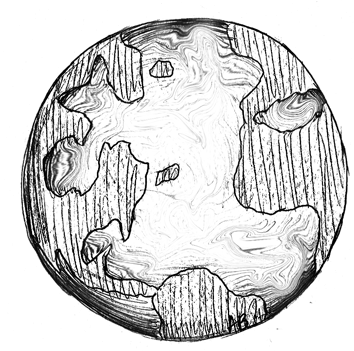Americans are only five percent of the global population; we use, however, more than 25 percent of the world’s energy, according to an article in the New York Times. With consumption and waste in mind, freshmen biology students had to change their consumerist ways for a short time to learn what it is like to live with limited resources.
For one week, freshmen biology classes took on a laboratory project more difficult than others. The purpose was to “help students understand about using more sustainable practices in the way we use resources and experience what it’s like to be in this country or another one that does not have any the resources we are fortunate enough to have,” according to Phil Stanko, science teacher, in the project outline.
“When we did this project in the past, we did it in a way that did not directly affect the students. Some years we would do a pond water experiment, but kids don’t get excited about duckweed,” Stanko said. “When all of a sudden you tell them they can’t use the internet, all of a sudden the [project] becomes important.”
Throughout the week, students were limited in the food they could eat. They were not able to eat any snacks, desserts, or other food between meals. If they skipped a meal, they were required to wait until the next meal to eat. Also, students could only use one napkin, cup, plate, fork, and spoon for the entire week; they could not use any paper products, with the exception of notebook and toilet paper.
Danielle Selvais, freshman, says this part of the lab made the most impact on her life.
“Americans seem to think that eating is a form of entertainment,” Selvais said. “So many people in the world are not regularly in reach of food. Now that I realize how important it is, I will only eat when I’m hungry.”
In addition to limiting food, students were also required to limit their water usage. They could only shower every other day and were not able to do laundry; they were limited to one wash cloth, hand towel, and bath towel for the duration of the project.
“This project made all of us think about how much we waste,” Selvais said. “When I learned how many people are not in reach of clean water all over the world, I decided from then on that I wouldn’t take my time in the shower anymore.”
The students also learned what it was like to live with restricted electricity for one week. Outside of school, they were not allowed to use cell phones, television, iPods, or computers. They could not use irons, blow dryers, or hair straighteners and lights had to be off by 10pm.
Finally, each student was limited to one coat, one hoodie, two shirts, and two pairs of pants for the entire week.
“These kids have so much compared to so many others in the rest of the world,” Stanko said. “Kids in Uganda definitely cannot change their clothes every single day; they don’t realize how very fortunate they are to be able to do that. They are still always thinking about themselves…they need to learn to step out of themselves and into the shoes of someone else.”
Overall, students had various viewpoints on the project as a whole.
“It was a very interesting project, but some stuff was a little extreme,” Josh Woodfill, freshman, said. “I think they limited us too much. However, it did give me a new perspective on what other countries go through. To know that a situation could be much worse than this project put a lot into perspective for me.”
While the project changed the minds of many students, others admit they could not stay faithful to the project throughout the week.
“It was helpful to think about what we take for granted because I dine out somewhere every day. I broke the food rule. It was really different to see how I would live without snacks,” Marlisa Barrett, freshman, said. “It is definitely going to make me think about how much I waste.”
Even though the project got mixed reviews from students, Stanko was generally pleased with the outcome of the project.
“I think [this project] is consistent with our [district] mission, especially the part where it says we need to help students become caring and global citizens,” Stanko said. “I wanted to make it a good learning opportunity. I think they have really reconnected with their environment and were willing to leave their comfort zone. I hope they realized that the world is bigger than Lake Zurich.”

